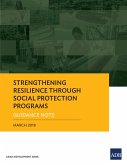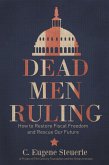Welfare reform, which required that poor mothers work in return for assistance, was a watershed in the struggle against poverty for American families. As work levels rose dramatically among low-income women, the welfare rolls were cut in half and many families rose out of poverty. But men's employment is also crucial to uplifting families, and programs designed to encourage work among poor men are often poorly funded and little understood by policymakers. Expanding Work Programs for Poor Men makes the case that poor fathers, like poor mothers, need 'both help and hassle.' That is, poor men need more help from the government, but they must also be expected-and required-to help themselves. Drawing on welfare reform as a successful precedent, Lawrence M. Mead explores the psychology of male nonwork and evaluates the successes and failures of existing government programs for poor men, including child support and conditions of parole. These programs have succeeded in increasing work levels among poor men by requi
Dieser Download kann aus rechtlichen Gründen nur mit Rechnungsadresse in A, D ausgeliefert werden.









